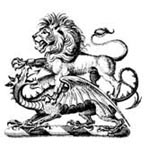
John Milton, Farewell
THE THRILL IS GONE
Who still reads Milton? If there is a canon, he is barely included, and I pay attention to him only to see if I might be done with him. Of course, Paradise Lost (1667) was enthralling, notwithstanding its foul anti-Catholicism. Here was complex storytelling in a grand style with characters greater than any from the ancient Greek world — and it spoke directly to the truths I hold dear. Other of Milton’s works, too, rewarded variously, particularly his sonnet “On His Blindness” (1673) — in which he wrote, “They also serve who only stand and wait” — and his poems l’Allegro (1645) and Il Penseroso (1632). I can see how Douglas Bush, the great scholar of the 17th-century, having forgotten his copy of Paradise Lost while traveling by train to lecture on Milton in some far city, simply recited it from memory. (Since the epic poem proved too short, Bush began Paradise Regained; alas, the train reached its destination before Jesus wins His debate with Satan.) I even fed on The Areopagitica (1644), a clarion call for freedom of speech — except for Catholics.
The critical debates about Milton in the 20th century (there had been none in the 19th century) were also fascinating, especially C.S. Lewis’s A Preface to Paradise Lost (1942), a defense against T.S. Eliot’s critique. I became absorbed by the poem’s problems. For example, is God the Father merely a jealous tyrant? Is Satan the genuine hero, finally degraded by a poet who realized he had lost control of his material? What to make of the general lack of human sympathy, with Adam and Eve merely helpless victims? Is the Garden no more than a preposterous greenhouse? Is Adam’s fall not sinful but a manifestation of perfect human love? Why is Eve condemnable for wanting to be superior to Adam? What are we to make of Milton’s highly ambiguous treatment of rhetoric, he who defends its free use in Areopagitica? At last, I asked the question that matters most with any literary work: How should we read it? Which is another way of asking, What kind of thing is it? Myth? There are too many concrete anatomical questions for that option: angels eating, digesting, and evacuating. Allegory? In Book V, Raphael hints at that with his, “I shall delineate so, / By lik’ning spiritual to corporeal forms, / As may express them best.” Finally, I came to see Paradise Lost (if it had been written in prose) as an historical novel and, as such, great fun to read.
Many decades on, the verse proper often retaining its astonishments, the general macro-thrill of reading Milton (always excepting the supernatural, cinematic grandeur and horror of Books I and II of Paradise Lost) is gone. He is not what he seems. Simply put, I’ve come to realize that Lucy Beckett, author of In the Light of Christ: Writings in the Western Tradition (2006), is right: Milton is no Christian. That is, he gets it wrong and, worse, seems not to know it. Much more an Old than a New Testament man, he, in his stulted Puritanism (he got that wrong too), provokes a certain diplopia, an irony, seeming to be one thing but actually being another.
And yet, in light of my preposterous claims (now stipulated: more to come), as well as my pre-enlightened allegiance, I would give this great poet a last chance, in the form of a look at his much-neglected closet drama Samson Agonistes (1671), not least because it is so neglected. First, though, I must (as Milton might say) perambulate, and that begins with Aristotle, as did Milton, whose introduction to the drama emphasized Aristotelian principles.
You May Also Enjoy
The book seemed absurd when it appeared in 1962. Sixty years later, lipstick-wearing men, sex changes, and overzealous population controllers are common.
Cheever is a melioristic figure in contemporary literature. But whether such a tatterdemalion figure can be “baptized” is another matter.
I am fairly sure that it is Robert Bellah (I have admired his work, his…

